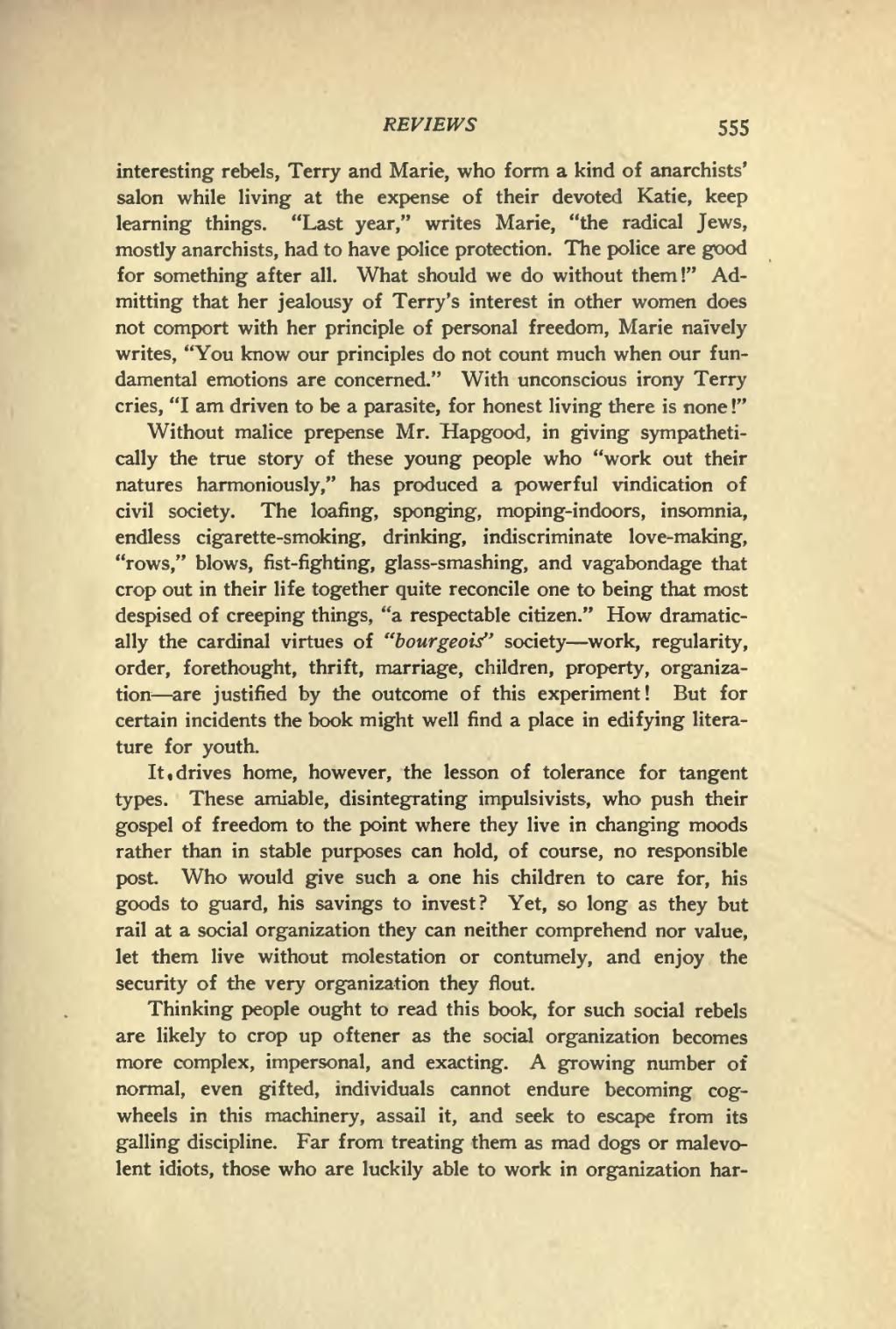REVIEWS 555
interesting rebels, Terry and Marie, who form a kind of anarchists' salon while living at the expense of their devoted Katie, keep learning things, "Last year," writes Marie, "the radical Jews, mostly anarchists, had to have police protection. The police are good for something after all. What should we do without them !" Ad- mitting that her jealousy of Terry's interest in other women does not comport with her principle of personal freedom, Marie naively writes, "You know our principles do not count much when our fun- damental emotions are concerned." With unconscious irony Terry cries, "I am driven to be a parasite, for honest living there is none !"
Without malice prepense Mr. Hapgood, in giving sympatheti- cally the true story of these young people who "work out their natures harmoniously," has produced a powerful vindication of civil society. The loafing, sponging, moping-indoors, insomnia, endless cigarette-smoking, drinking, indiscriminate love-making, "rows," blows, fist-fighting, glass-smashing, and vagabondage that crop out in their life together quite reconcile one to being that most despised of creeping things, "a respectable citizen." How dramatic- ally the cardinal virtues of "bourgeois" society — work, regularity, order, forethought, thrift, marriage, children, property, organiza- tion — are justified by the outcome of this experiment! But for certain incidents the book might well find a place in edifying litera- ture for youth.
It, drives home, however, the lesson of tolerance for tangent types. These amiable, disintegrating impulsivists, who push their gospel of freedom to the point where they live in changing moods rather than in stable purposes can hold, of course, no responsible post. Who would give such a one his children to care for, his goods to guard, his savings to invest? Yet, so long as they but rail at a social organization they can neither comprehend nor value, let them live without molestation or contumely, and enjoy the security of the very organization they flout.
Thinking people ought to read this book, for such social rebels are likely to crop up oftener as the social organization becomes more complex, impersonal, and exacting. A growing number of normal, even gifted, individuals cannot endure becoming cog- wheels in this machinery, assail it, and seek to escape from its galling discipline. Far from treating them as mad dogs or malevo- lent idiots, those who are luckily able to work in organization har-
